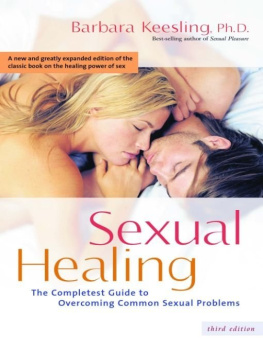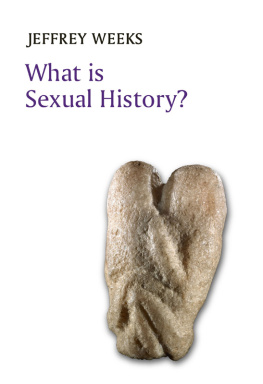Ka r masutra
The Karma of Sex
A non-moralizing look at the karmic laws and rules governing consensual sexual conduct, freeing us from years of rigid religious or dogmatic sexual conditioning
STAJU JACOB

Copyright 2016 Staju Jacob
The moral right of the author has been asserted.
Apart from any fair dealing for the purposes of research or private study, or criticism or review, as permitted under the Copyright, Designs and Patents Act 1988, this publication may only be reproduced, stored or transmitted, in any form or by any means, with the prior permission in writing of the publishers, or in the case of reprographic reproduction in accordance with the terms of licences issued by the Copyright Licensing Agency. Enquiries concerning reproduction outside those terms should be sent to the publishers.
Matador
9 Priory Business Park,
Wistow Road, Kibworth Beauchamp,
Leicestershire. LE8 0RX
Tel: 0116 279 2299
Email:
Web: www.troubador.co.uk/matador
Twitter: @matadorbooks
ISBN 978 1785897 344
Cover page design and revision of illustrations by
British Library Cataloguing in Publication Data.
A catalogue record for this book is available from the British Library.
Matador is an imprint of Troubador Publishing Ltd
To the fondest memories of Rejeline Jacob and Guruji Krishnananda
and
To Kamadeva, the god of love
Namostu pupabya jagadnandakrie
manmathya jagannetraratiprtipradyine
Homage to the carrier of flower arrows, the creator of worlds joy
The stirrer of heart and the bestower of pleasure and love the eye of the world
CONTENTS
PART I
INTRODUCTION
Introduction to Karma
What is This Book All About?
Some people might question the relevance of this book. After all, sex is freely available in most Western, liberal, developed societies. In these societies, men and women are free to choose their sexual partners. However, large parts of the world are still mired in an outdated religiously-driven framework of sexual behaviour. This book advocates a paradigm of sexuality which goes beyond mere availability. It aims to remove the stigma of sex from the society. The human race, tired of its various environmentally disastrous forays into development is seeking to reconcile with nature. The sexual paradigm however, continues to be driven by religious discourse. If eating and sleeping are natural activities deserving no publicity, one wonders why sex still makes news. If the President of the United States eats food from a street restaurant, no one would bother, but if he decides to have sexual pleasure with a person other than his legal partner, it makes for front page news.
This book is about freeing the sexual energy within marriage. Most democratic countries have eight to ten fundamental rights, which usually include the right to free speech, freedom of religion, freedom of thought, etc. But unless there is another fundamental freedom of sexual expression, no society can be truly free and in harmony with the cosmos. This freedom, like the freedom of free speech and thought, cannot be shackled by other contracts and agreements like marriage.
The Issues Under Discussion in This Book
Is it possible to reconcile this idea to the existing paradigm of sexual exclusivity which is the bedrock of marriage, partnerships and committed relationships? If yes, as happens in couples practising open marriages, can it be ingrained within a socially acceptable and robust model of family? Can there be an ethical paradigm for sexual behaviour free from the influence of religious texts? After all, many of our sexual mores and ethics come from contextual writings in these texts.
Such an approach will easily integrate karmic well-being while making sex guilt-free. Can a person enjoying sexual variety aspire to spiritual upliftment and indeed experience spiritual dimensions? Can he meditate and experience the fruits of meditation? Does a high degree of sexuality bring down human capability for spiritual pursuits? Is it possible for us to imagine a world where a man (or woman) can search for sexual fulfilment as easily as he (or she) searches for a good restaurant? These and other ethical dilemmas of consensual sexual behaviour are the various questions that this book tries to address. This book has not explored the issues of coercive sexual activities such as rape or paedophilia, which are illegal in most countries of the world anyway. The immorality of these actions is well-established and there is little dissonance between the laws of countries and what is taught by most religious books when it comes to these violent one-sided sexual activities.
This book is also a book of digressions. Rooted in perspectives of cosmic harmony in sensual activities, it digresses gently into areas of spirituality, psychology and sociology. The limitation of this approach is to be a jack-of-many-peripheral-issues without being the master of any. Despite this drawback, if it adds to the perspective of people seeking fresh insights into cosmic rules, it is hoped that sociologists, psychologists and technique-oriented occultists will forgive the author for straying into their domains without earning professional spurs. If this work can be said to have any authority in any area besides sexual ethics, let it be known as a work throwing fresh light on some poorly lit areas of cosmic mysteries.
Family: a Unit of Love, Empathy and Contentment
Since most of the world still thinks of marriage as the bedrock of family, we will refer to marriage frequently. (In this book, a long-term partnership is also considered the equivalent of marriage in terms of expectations from both partners. Hence the same principles which govern marriage would apply. The word marriage is only used frequently for readers from non-Western cultures where non-marital sensual relationships are often considered illegal, uncouth or both.)
Family, most people agree, is the constitutional unit of society. We agree that violence used against children even within the confines of the family is not morally tenable. We also understand that an environment of love and empathy within the family leads to well-being and development of individuals. Can we not, then, extend this principle of love and jealousy-free well-being to so-called committed sensual relationships? Within a loving marriage or partnership, the partner is not hauled over hot coals for eating from a public restaurant instead of a home kitchen. Similarly, can we one day hope for the dawn of a liberal society where a man (or woman) can occasionally have his (or her) sexual needs satisfied from the market place without having the foundations of an existing marriage or relationship shaken to its very core?
The Workplace and its Temptations
In the past centuries, men have been breadwinners while women remained confined to their homes as dutiful housewives. They often had children to tend to. The opportunities for physical intimacy with others were limited. The availability of leisure time was another constraint. Household chores often left the housewife too tired for sexual experiments. Today, the scenario is different. To create their own identity and for financial well-being, women have moved into the heart of the industrial society as workers, managers and owners. Careers have become an important consideration for women too. Even in societies like India, tied to ancient customs, women in the cities have moved out of their homes to make their mark in the productive, increasing Gross Domestic Product (GDP) economy. However, the advent of automated machines in most spheres also means that there is reduced physical activity and increasing amount of desk-based work.










